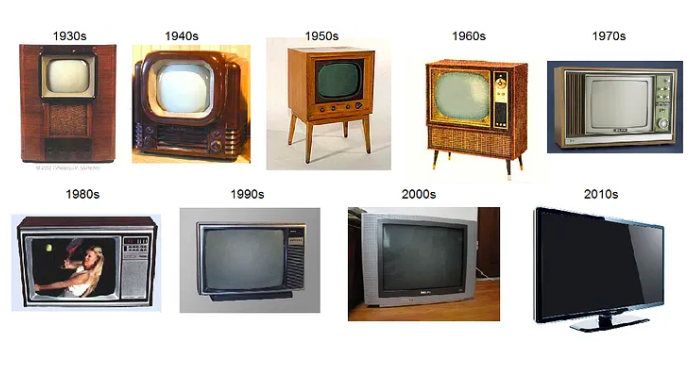Television, often referred to as “idiot box,” it has been a central figure in households worldwide since it was introduced. Originally, it was celebrated as a medium for entertainment, information, and education, but now TV has become a subject of intense debate and scrutiny. Critics argue that excessive television consumption contributes to a negative impact on intelligence while remaining an invaluable source of content and connection.
As a quote written in “Entertainment Ourselves to Death: Social Consequences of the Television Resolution” by Michael Medved:
“Television is a Medium that frequently forces us to rely on appearances and emotions rather than intellect and reason.”
In the early days, television was the head of the family. Families gathered around their sets to watch iconic shows that brought laughter, tears, and new perspectives. Iconic programs and movies like “Vivah” and “Kyuki saas bhi kabhi bahu thi ” set the stage for what would become an ever-evolving medium, capable of reflecting and shaping societal norms.
However, as television became more popular, concerns about its impact on society grew. The term “idiot box” emerged in the 1960s, capturing the sentiment that TV was a passive, mind-numbing activity. Critics argued that prolonged viewing led to decreased physical activity, lower academic performance, and diminished social skills. The idea was that TV turned viewers into passive recipients of information, rather than active participants in their own lives.
The main concern of the society was quality of content. The rise of reality TV, sensationalist news, and adult programs has led many to see the decline of television’s intellectual and artistic standards. The content shown on television had a very negative impact on the mindset of society. Commercial interests often drive content creation, leading to an overemphasis on ratings and profit over substance and creativity. This commercialization has further fueled the perception of television as an “idiot box,” prioritizing entertainment value over educational or thought-provoking material.
The effect of television on children has been a particularly hot topic. Studies have shown that excessive screen time can lead to attention problems, behavioral issues, and impaired learning, Which also has a negative effect on Intelligence. Parents and educators worry about the messages being conveyed through TV, from violence and stereotypes to consumerism and unhealthy lifestyles. Despite these concerns, television also has the potential to be a powerful educational tool, with programs on Discovery channels demonstrating how TV can support learning. and development.
It is very well written in a book “Remotely Controlled: How Television Is Damaging Our Lives” by Aric Sigman:
Television has transformed our lives and our children’s lives into a permanent spectator sport, making passive spectators out of otherwise active participants”.
In recent years, the rise of digital streaming platforms has transformed how people consume television. Binge-watching, on-demand content, and recommendation-based content have changed viewing habits and intensified debates about television’s role in society. While some argue that streaming services offer more diverse and high-quality content, others worry that they contribute to even more screen time and isolation.
While Television can serve as a source of relaxation and enjoyment, it’s essential for viewers to be mindful of their consumption habits. Parents, in particular, play a crucial role in monitoring and guiding their children’s TV use, ensuring a balance between screen time and other activities.Thus, it is in the hands of the viewers to decide what kind of content they are choosing and whether they are engaging in passive or active consumption.
However, regulatory authorities play an important role in shaping the TV industry to serve the public interest, upholding broadcasting standards, and protecting viewers from potential harm. Their oversight helps maintain a responsible and beneficial role for television in society.
Television’s journey from a celebrated innovation to a scrutinized staple reflects broader cultural anxieties about technology and its influence on our lives. Thus, it remains crucial to critically assess both the content we consume and the time we devote to it, striving to harness the benefits of television while mitigating its drawbacks.











Add Comment